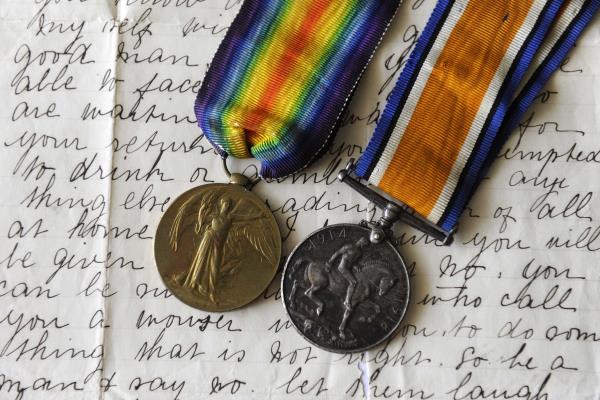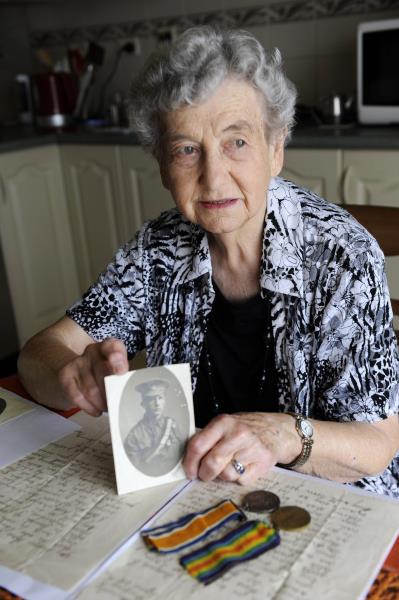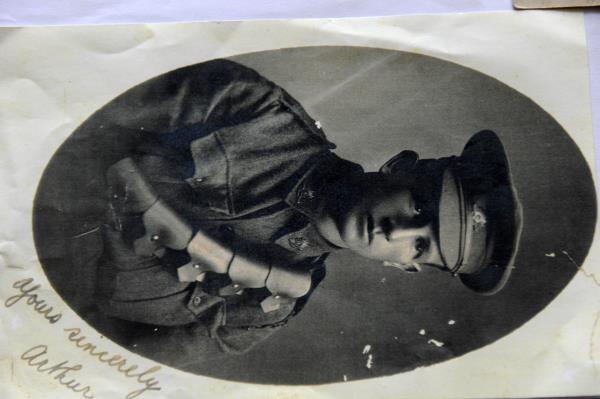
By BRIDGET SCOTT
WHEN Beryl Craig reflects on the time she spent with her father, she wished she had asked more.
“He didn’t talk much,” but Arthur Walter Sinclair held a soft spot for his youngest of three who he affectionately knew as ‘Scruff’.
“You remember a lot as you age – there was a lot I wished I had asked,” the Cranbourne woman said.
His quiet and reserved nature was well warranted, after he was deemed totally and permanently incapacitated (TPI) upon his return from World War I.
Young and naive at just 18 years of age, nothing could have prepared the Brunswick-born boy for what he would endure after he enlisted on 22 February 1916.
A gunner as part of the 14th Field Artillery Brigade, 2nd Reinforcements, it was over a year after he had arrived overseas that Gunner Sinclair was badly wounded and forced to spend a year in a rehabilitation centre.
In 1917 Gunner Sinclair was shot in the leg and taken to Etaples where he remained for a while before he was moved to a rehabilitation centre in a London hospital.
The injuries sustained by the soldier impacted the rest of his life and Ms Craig can remember attending ceremonies on Anzac Day with her own father unable to march.
While Ms Craig’s memories of her father’s experience overseas are scarce, she can still recall the few times he opened up to his family.
“He used to tell a story of when he was in the trenches, sitting around the fire with his fellow troops with their singlets out, trying to get rid of all the lice,” she said.
As with most families during the war, letters were exchanged from one side of the world to the other, and Ms Craig has held on to one which her father received from his own mother.
“He who laughs last laughs best,” his mother told him during a warning against giving into “temptations” while at war.
Urged not to drink by his mother, Ms Craig believes years of smoking killed her father at the young age of 67.
“He was encouraged to smoke – the effects killed him,” she said.
Prior to this her father, a qualified tuckpointer struggled to return to work after the war.
“There wasn’t a lot around, it seemed unfair,” she said.
Life was never easy for the Sinclairs, with Ms Craig herself born at the beginning of the Great Depression after her parents married.
However she will never forget her father’s quirky sense of humour which still remained intact.
Buried at Nillumbik Cemetery in Diamond Creek, her father’s service wasn’t Ms Craig’s only connection to the war.
With sadness she recalled her great uncle, Robert Hector Sinclair, who remains as one of many soldiers with no known grave. On 25 April 1915, Mrs Craig’s great uncle was killed in action.“He was 34 when he joined up and had no family,” she said.
“He had a hard life, he must have felt at the time that nobody wanted him,” she said.
Robert Sinclair is one of 3268 Australians commemorated on the Lone Pine Memorial in Turkey.
With a strong connection to WWI, Ms Craig said it was important to remember the meaning behind Anzac Day.
“It’s not a celebration, it’s a remembrance,” she said.
“What a waste it was.”









